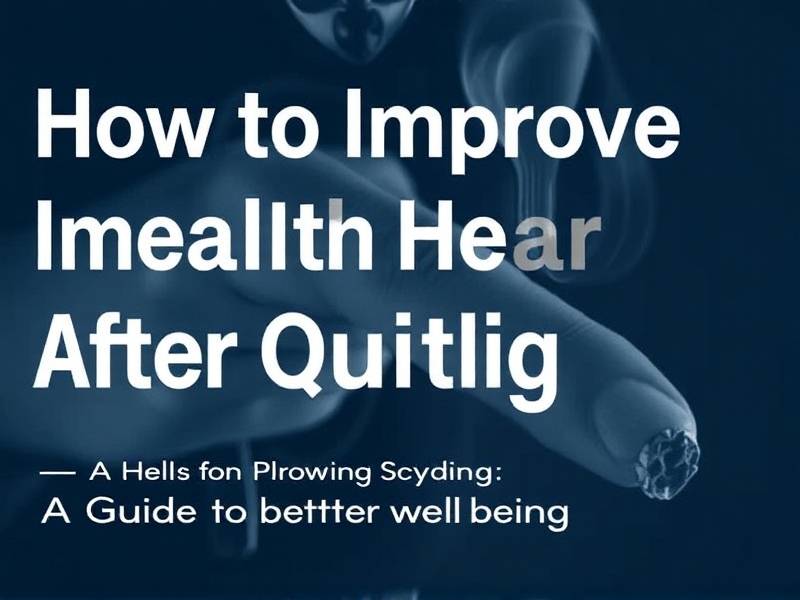How to Improve Health After Quitting Smoking: A Guide to Better Well-being
How to Improve Health After Quitting Smoking: A Guide to Better Well-being
Introduction: Quitting smoking is a significant step towards improving your health and well-being. However, the journey doesn't end once you put out that last cigarette. This guide will help you navigate the post-quit period, offering practical tips and insights to enhance your health and quality of life.
1. Acknowledge Your Milestone
First and foremost, celebrate your success! Quitting smoking is no small feat, and recognizing this achievement is crucial for maintaining motivation.

2. Monitor Your Progress
Keep track of your milestones and improvements in health. Use a quit-smoking app or journal to record changes in your lung capacity, blood pressure, and overall energy levels.
3. Adopt a Healthy Diet
Nutrition plays a vital role in recovery from smoking. Incorporate plenty of fruits, vegetables, whole grains, lean proteins, and healthy fats into your diet. This not only supports overall health but also helps reduce cravings.
Tips for a Balanced Diet:
- Start your day with a nutritious breakfast.
- Choose whole grains over refined carbohydrates.
- Snack on nuts, seeds, or yogurt instead of sugary snacks.
- Drink plenty of water throughout the day.
4. Increase Physical Activity
Exercise is not only beneficial for weight management but also for reducing withdrawal symptoms and improving mental health. Aim for at least 30 minutes of moderate exercise most days of the week.

Types of Exercise:
- Walking
- Jogging or running
- Cycling
- Swimming
5. Manage Stress Levels
Stress can trigger smoking relapse. Find healthy ways to cope with stress, such as meditation, deep breathing exercises, yoga, or engaging in hobbies you enjoy.
Stress Management Techniques:
- Mindfulness meditation
- Progressive muscle relaxation
- Breathing exercises
6. Seek Supportive Relationships
Surround yourself with people who support your decision to quit smoking. Joining a support group or finding an accountability partner can provide additional motivation and encouragement.
7. Consider Nicotine Replacement Therapy (NRT)
If you're struggling with cravings or withdrawal symptoms, consider using NRT products like gum, patches, lozenges, or inhalers under medical supervision.
8. Consult Healthcare Professionals
Regular check-ups with your doctor are essential to monitor any changes in your health post-quitting smoking. They can also provide guidance on how to optimize your recovery process.
Conclusion:
Improving health after quitting smoking is a gradual process that requires patience and dedication. By adopting these strategies and maintaining a positive mindset, you can enhance your well-being and lead a healthier life free from the dangers of tobacco use. Remember that every step you take towards better health is a victory worth celebrating!
